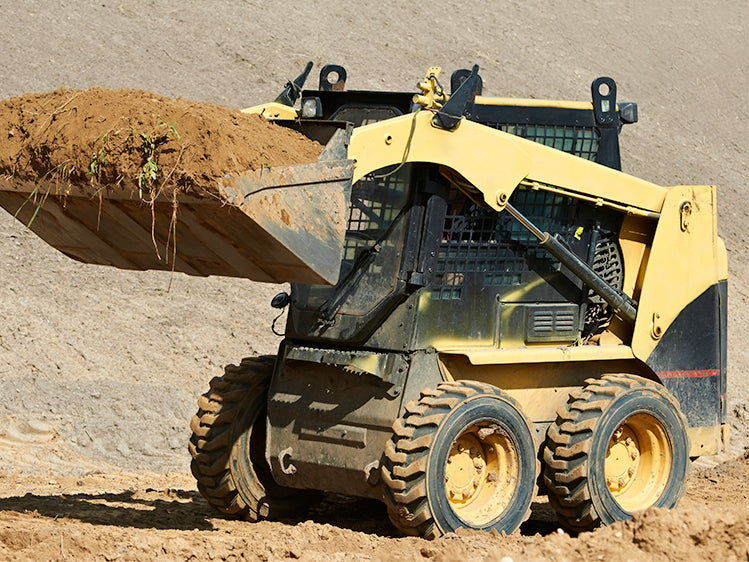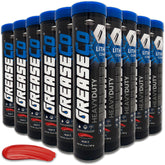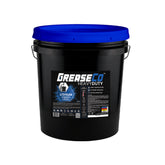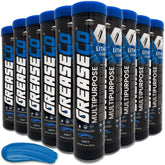What is Moly Grease Best Used For?
Moly Grease
Moly grease, a specialized lubricant infused with molybdenum disulfide (MoS2), has played a pivotal role in the evolution of industrial lubrication since its inception. Tracing back to the mid-20th century, this unique compound was initially recognized for its exceptional stability and lubricating properties under extreme conditions. Molybdenum disulfide, the key ingredient, is a naturally occurring mineral that, when refined and integrated into a grease base, imparts extraordinary friction-reducing qualities. This has made moly grease an indispensable asset in various high-stress, high-load applications.
The Mechanics of Moly Grease
At the heart of moly grease's effectiveness is the molecular structure of molybdenum disulfide. MoS2 consists of layers of molybdenum atoms sandwiched between layers of sulfur atoms. Under pressure, these layers slide over each other with ease, facilitating a low-friction interface between moving parts. This 'plating' action of MoS2 not only minimizes direct metal-to-metal contact but also significantly reduces wear and tear, thereby extending the service life of components. It has often been explained as "trying to run on a floor covered with a deck of playing cards."
The benefits of moly grease extend beyond its sheer lubricating prowess. Its resilience to high temperatures, water resistance, and ability to adhere to surfaces make it a versatile choice for a myriad of applications. From industrial machinery bearings to automotive suspension systems, moly grease ensures optimal performance and protection.
Prime Applications for Moly Grease
Given its robust nature, moly grease shines in environments where other lubricants falter. Here's a closer look at the wide range of applications where moly grease is the lubricant par excellence:
| Application Area | Description |
|---|---|
| Industrial Bearings | Provides unmatched lubrication under high loads and temperatures in manufacturing facilities. |
| Automotive Chassis Components | Essential for lubricating ball joints, tie rods, and control arms, ensuring smooth operation. |
| Construction Machinery | Protects pins, bushings, and joints in bulldozers, excavators, and cranes against wear and corrosion. |
| Off-road Vehicles | Offers durable lubrication for ATVs, UTVs, and dirt bikes in harsh, muddy conditions. |
| Heavy Equipment Hinges | Ideal for lubricating hinges and pivot points on large doors, gates, and industrial equipment. |
| Agricultural Equipment | Ensures the reliability and longevity of tractors, combines, and plows operating in demanding agricultural settings. |
| Marine Winches and Anchor Chains | Provides corrosion-resistant lubrication in the wet, saline conditions of marine environments. |
| Mining Equipment | Protects drill rods, conveyors, and loaders in abrasive, dust-laden mining operations. |
| Aerospace Fasteners | Used on bolts and fasteners in aircraft, offering high-load carrying capacity at extreme altitudes. |
| Wind Turbine Bearings | Ensures the efficiency and reliability of bearings within wind turbines, crucial for renewable energy generation. |
| Bicycle Bearings | Offers reliable lubrication for pedal bearings and suspension forks in mountain and road bikes. |
| Motorcycle Chains | Provides long-lasting lubrication and protection against the elements for on- and off-road motorcycles. |
| Industrial Gearboxes | Protects gears and bearings against extreme pressures and shock loads in heavy-duty industrial applications. |
| Railroad Track Equipment | Lubricates equipment used in the maintenance and construction of railway tracks under heavy loads. |
| Hydraulic Hammer Lubrication | Reduces wear on moving parts within hydraulic hammers and breakers used in construction and demolition. |
| Skateboard Bearings | Ensures smooth rotation and longevity of bearings under the high-impact conditions of skateboarding. |
| Fitness Equipment | Offers durable lubrication for pivot points and joints in weight machines and cardio equipment. |
| Door Hinges and Locks | Provides long-lasting lubrication for heavy-duty industrial and commercial doors. |
| Power Tool Gears | Protects and extends the life of gears in electric drills, saws, and other power tools. |
When Should You Not Use Moly Grease?
Despite its wide-ranging utility, moly grease isn't a one-size-fits-all solution. There are circumstances where its use might be inappropriate or even detrimental:
- Compatibility with Materials: It can swell or degrade certain types of plastics and elastomers, potentially leading to equipment failure.
- High-Speed Applications: In high-speed bearings, such as those in electric motors, it can cause skidding or reduced effectiveness due to its solid lubricant particles.
- Precision Instruments: The presence of solid particles might impair the function of highly precise or sensitive equipment.
- Food Contact Surfaces: Moly grease should not be used in areas where it could come into contact with food unless it is certified as food grade.
- Excessive Application: Applying too much moly grease can lead to accumulation, attracting dirt and debris, which could hinder the performance of machinery.
Unsuitable Applications for Moly Grease
The following table highlights scenarios where moly grease might not be the optimal choice:
| Application Area | Description |
|---|---|
| High-Speed Electric Motors | The solid particles in moly grease can lead to reduced efficiency in high-RPM applications. |
| Certain Plastic Components | Plastics like polystyrene and polycarbonate can degrade in contact with moly grease. |
| Precision Optical Equipment | The particulate nature of MoS2 can interfere with the delicate mechanisms of optical devices. |
| Food Processing Machinery | Direct contact with food products necessitates food-grade lubricants, which moly grease typically is not. |
| Aerospace Control Systems | The demanding precision and cleanliness required in aerospace components may be compromised by the solid lubricants in moly grease. |
| High-Speed Spindle Bearings | Such bearings require lubricants without solid additives to maintain optimal performance. |
| Clean Room Machinery | The potential for particle contamination makes moly grease unsuitable for clean room applications. |
| Electric Switches and Contacts | Conductivity issues can arise from the use of moly grease in electrical connections. |
| Sensitive Electronic Devices | The risk of contamination and conductivity can affect the reliability of electronic components. |
| Oxygen Service Equipment | In oxygen-rich environments, the use of moly grease can pose a combustion risk and is generally avoided. |
Moly grease's unique blend of durability, load-bearing capacity, and resistance to harsh conditions make it an invaluable resource in many industrial, automotive, and outdoor applications. However, understanding its limitations is crucial to selecting the right lubricant for your specific needs, ensuring both performance and longevity for your equipment.







Leave a comment
Please note, comments need to be approved before they are published.